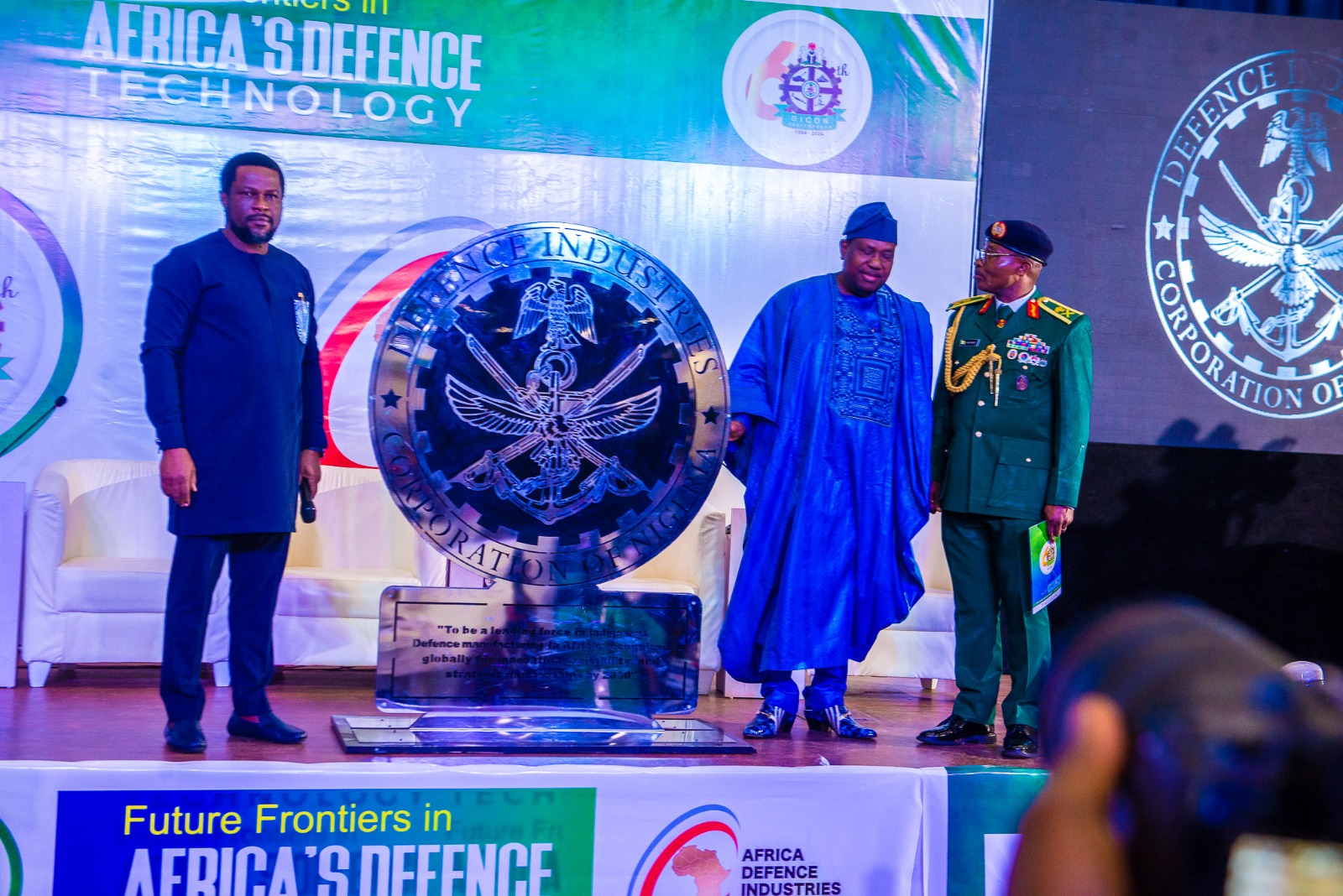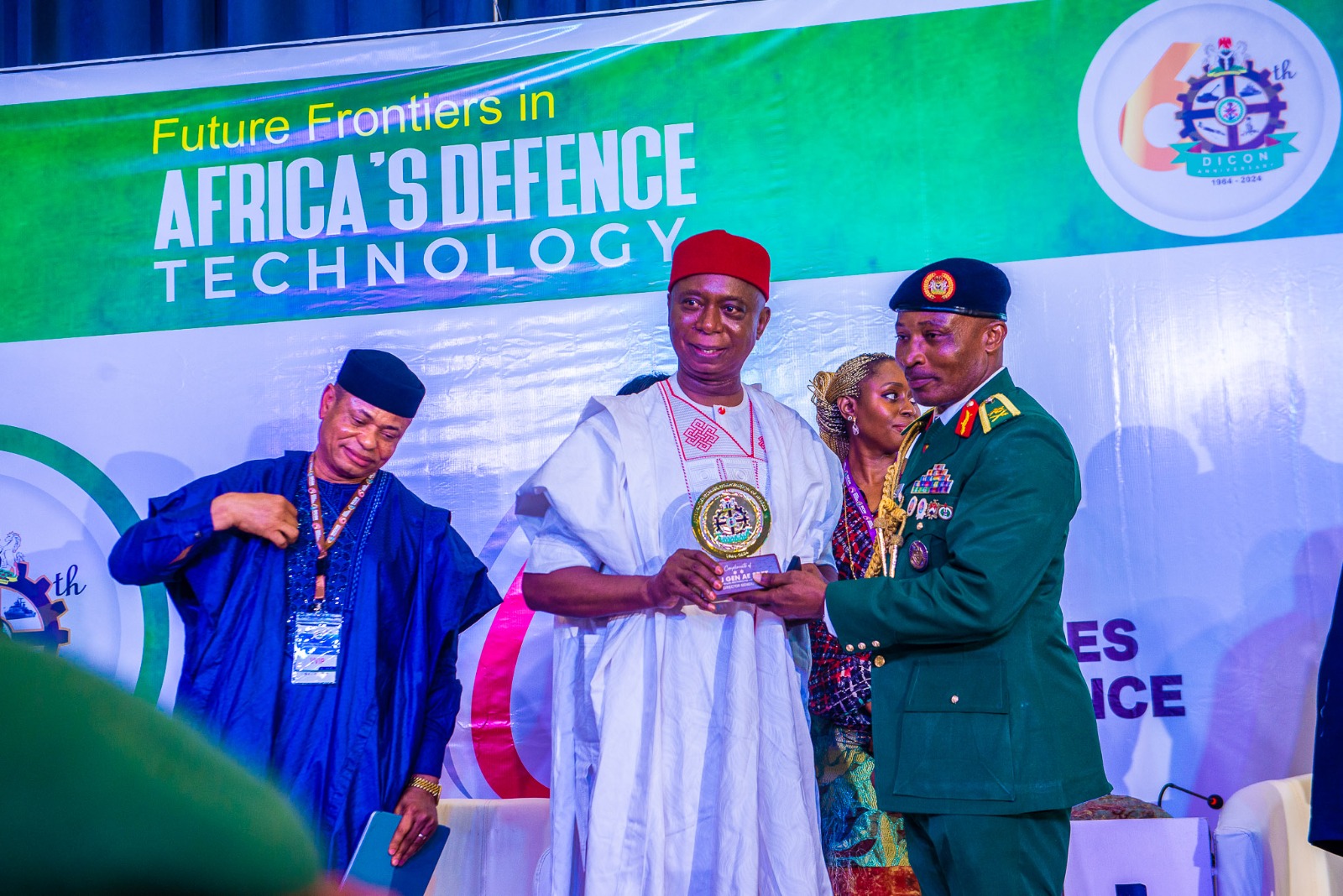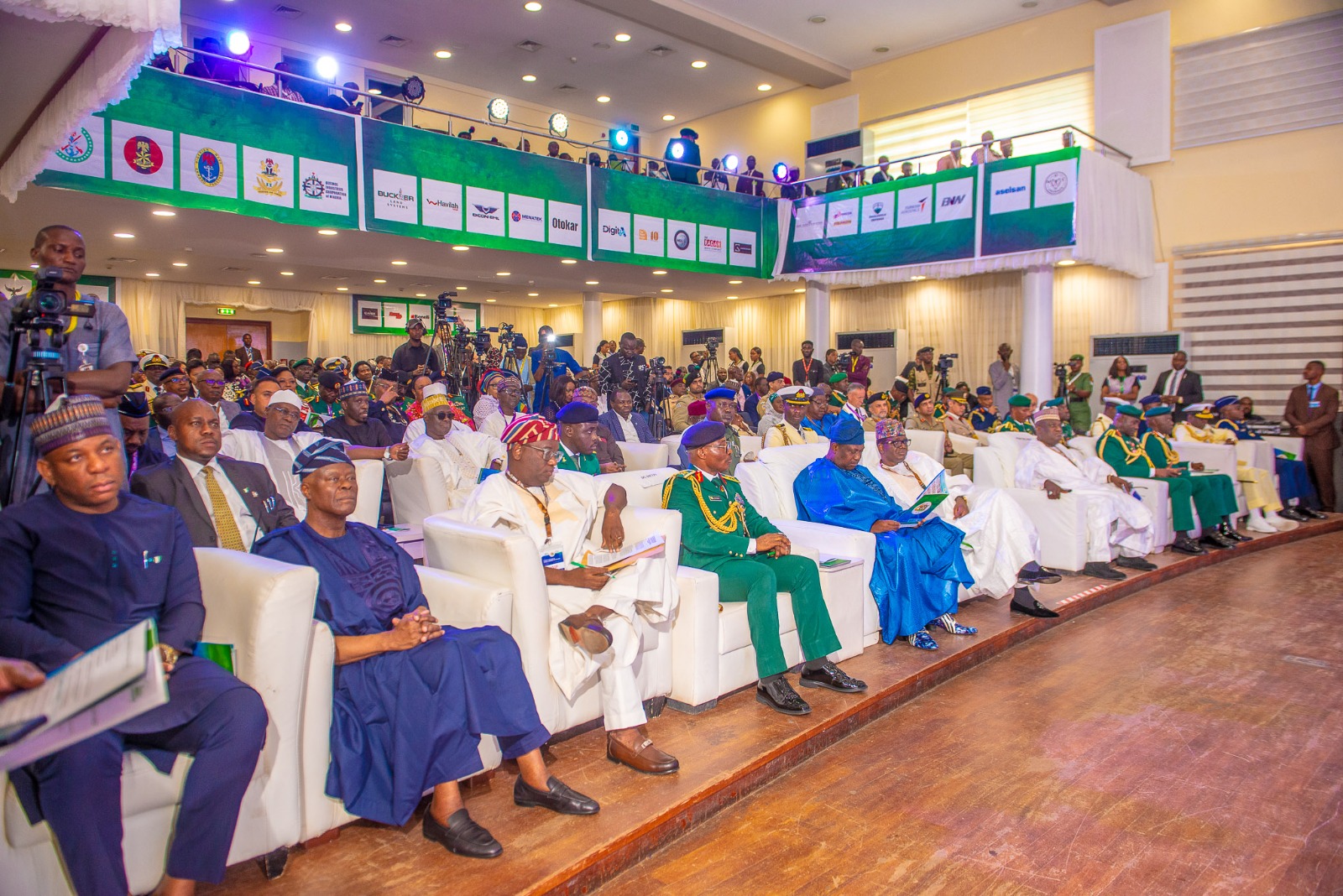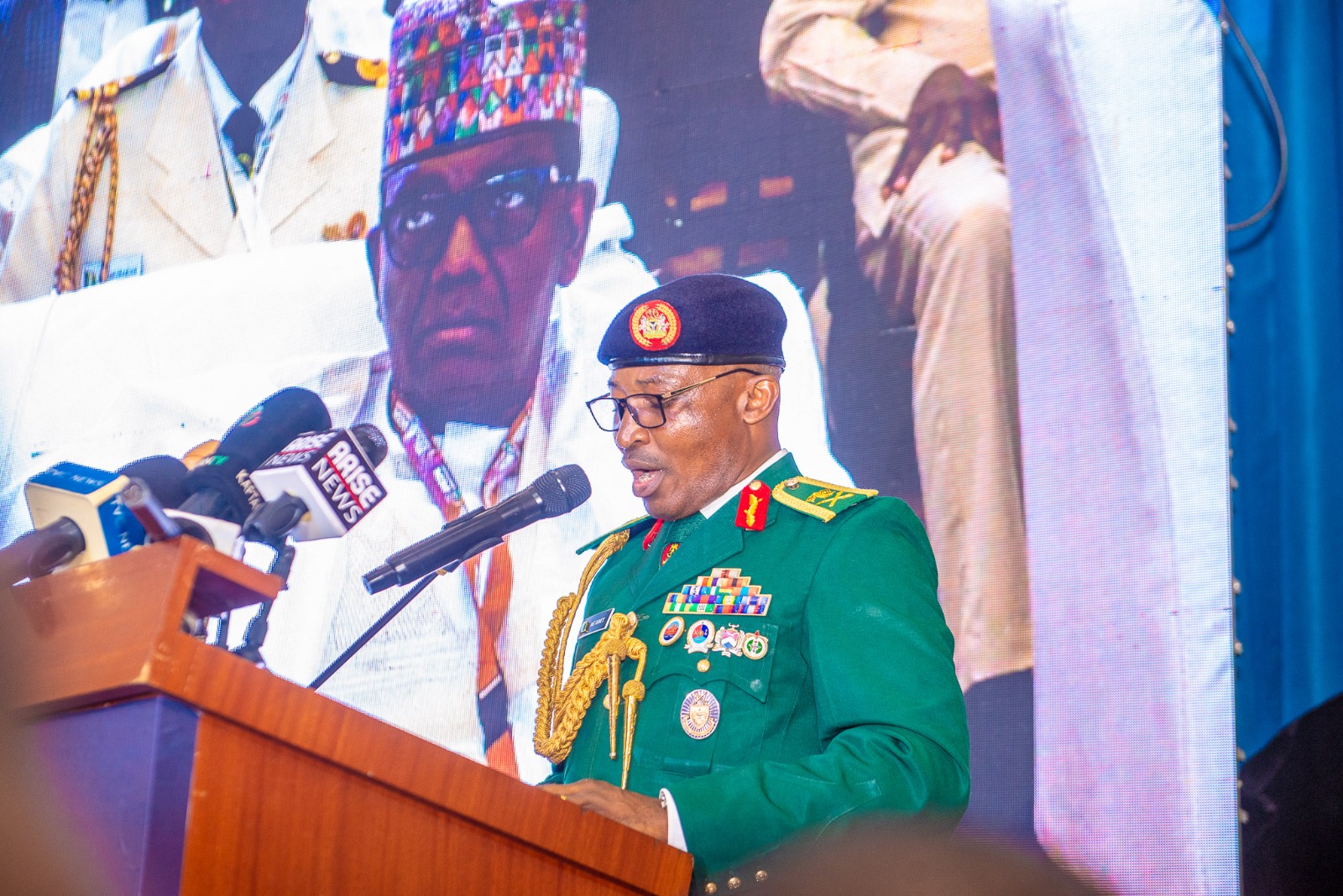
Last week, the Shehu Musa Yar’Adua Convention Center in Abuja was abuzz with activity as the Africa Defence Industries Conference (ADIC) took center stage. This landmark event, themed “Future Frontiers in Africa’s Defence Technology,” was more than just a celebration—it was a declaration of Africa’s growing influence in the global defense arena.
DICON at 60: A Legacy of Indigenous Excellence
The conference marked the 60th anniversary of the Defence Industries Corporation of Nigeria (DICON), a state-owned enterprise that has been at the forefront of developing advanced defense equipment and technology for decades. DICON’s journey from its humble beginnings to becoming a beacon of indigenous innovation is nothing short of inspiring. For six decades, DICON has not only contributed to national security but has also significantly shaped the defense landscape across the African continent.
With a strong commitment to producing cutting-edge military technology, DICON has been a driving force behind the continent’s defense capabilities. The corporation’s achievements are a testament to its strategic vision and ongoing innovation, reinforcing its pivotal role in safeguarding and advancing Africa’s defense interests.
A Celebration of Innovation and Collaboration
The 60th-anniversary celebration was more than a commemoration; it was a showcase of DICON’s strategic vision and ongoing innovations. The event featured a series of activities, including thought-provoking panel discussions, prestigious exhibitions, and the unveiling of DICON’s new strategic direction.
One of the highlights of the conference was the Defence Innovation Challenge, with Senator Ned Nwoko as the chief investor.

Sen. Ned Nwoko with Major General ANIEDI EDET.
This challenge spotlighted cutting-edge defense technologies and solutions developed within Nigeria, reflecting DICON’s dedication to fostering local expertise and inclusivity. The challenge was a clear indication that the future of Africa’s defense technology lies in the hands of its innovators.
Engaging Key Stakeholders in Africa’s Defense Future

Cross section of Dignitaries
The Africa Defence Industries Conference brought together a host of notable dignitaries, including the representative of Nigeria’s President, Senator George Akume, Secretary to the Government of the Federation (SGF), Minister of State for Defence Dr. Bello Mohammed Matawalle, Chief of Defence Staff General Christopher Gwabin Musa, and the Director General of DICON, Major General AE Edet.
These key stakeholders, along with other ministers, service chiefs, and international partners, engaged in discussions that underscored the importance of collaboration in driving forward the future of defense technology in Africa. The event was not just a celebration of past achievements but also a call to action for the future.
Panel Discussions: Shaping the Future of African Defense
The conference featured several in-depth panel discussions that addressed crucial aspects of Africa’s defense industry, providing a comprehensive look at the challenges and opportunities facing the sector:
AfCFTA and the Military Industrial Complex
A panel moderated by Col Felix Alaita (rtd), CEO of Kryterion Limited, explored the intersections between the African Continental Free Trade Area (AfCFTA) and the military-industrial complex in Africa. Major General Aniedi E Edet, Director General of DICON, led the discussion on how DICON’s strategies and innovations can align with and benefit from the AfCFTA framework.
Wamkele Mene, Secretary General of AfCFTA Secretariat, provided insights into the potential impact of AfCFTA on the defense industry, highlighting opportunities for cross-border collaboration and market expansion. Olusegun Awolowo, Secretary of the National Action Committee on AfCFTA, discussed Nigeria’s strategies for leveraging the agreement to boost its defense sector.
Major General Engineer Mokhtar Abdel Latif, Chairman of the Arab Organization for Industrialization (AOI) in Egypt, shared valuable perspectives on regional cooperation in defense manufacturing. Amaka Yvonne Onyemenam, Senior Consultant at Africa Practice, offered strategic insights on policy harmonization across African nations to create a more integrated defense industry ecosystem.
The panel emphasized the need for standardization of military equipment and technologies across African nations, which could lead to more efficient procurement processes and interoperability among African armed forces. They also discussed the potential for AfCFTA to facilitate technology transfer and knowledge sharing in the defense sector, ultimately strengthening Africa’s collective security capabilities.
Defense Economics: Unlocking Investment Potential
Adeola Akinrinmade, Executive Director of Finance at Petralon Energy, moderated a pivotal panel on defense economics. The discussion focused on strategies to unlock investment potential and secure funding for the military-industrial complex.
Veronica Bolton Smith from Third Way Capital provided insights into alternative financing models for defense projects, emphasizing the role of private equity and venture capital in driving innovation. Tunde Hassan-Odukale, CEO of Leadway Assurance, explored the potential of insurance and risk management solutions tailored for the defense industry.
Roosevelt Ogbonna, Managing Director/Chief Executive Director of ACCESS Bank, discussed the banking sector’s role in financing defense initiatives and the importance of creating specialized financial products for the industry. The panel collectively emphasized the need for a robust ecosystem of investors, financial institutions, and government support to fuel the growth of Africa’s defense sector.
Key points of discussion included:
- The importance of public-private partnerships in funding large-scale defense projects
- Strategies for de-risking investments in the defense sector to attract more private capital
- The potential for creating a dedicated defense industry investment fund to pool resources and spread risk
- The role of export credit agencies in supporting the international expansion of African defense companies
Overcoming Africa’s Brain Drain
Addressing the critical issue of brain drain, a panel moderated by Ajuma Ataguba, Managing Director of Founder Institute, explored strategies to attract and retain talented professionals from the African diaspora.
Doris Nkiruka Uzoka-Anite, Minister of Industry, Trade and Investment, outlined government initiatives aimed at creating a conducive environment for returnees and leveraging diaspora expertise. Dr. Femi Adeluyi, National Coordinator of the National Talent Export Programme (NATEP), shared insights on programs designed to facilitate knowledge transfer between diaspora professionals and local institutions.
Anna Ekeledo, Executive Director of AfriLabs Foundation, discussed the role of innovation hubs in creating opportunities for talented individuals within Africa. Frederick Kevbe Akpoghene, CEO/Founder of JeGO, and Charles Emembolu, Founder of Dexude, shared their experiences as diaspora returnees who have successfully established businesses in Africa.
The panel highlighted several key strategies for talent retention and attraction:
- Creating competitive remuneration packages and career advancement opportunities in the defense sector
- Establishing mentorship programs that connect diaspora professionals with local talent
- Developing world-class research facilities and innovation centers to provide cutting-edge work environments
- Implementing policies that ease the transition for returning professionals, including tax incentives and streamlined bureaucratic processes
- Fostering a culture of innovation and entrepreneurship to encourage talented individuals to build their careers in Africa
The Next Wave of Defence Innovation: AI and Autonomous Systems
Lavina Ramkissoon, CEO of HuDaTa and AI expert, led a forward-looking panel on cutting-edge advancements in artificial intelligence and autonomous systems within the defense sector.
Khalil Suleiman Halilu, Executive Vice Chairman/CEO of NASENI, presented on Nigeria’s efforts to develop indigenous AI capabilities for defense applications. Frederick Kevbe Akpoghene, CEO/Founder of JeGO, shared insights on the potential of autonomous drones in enhancing surveillance and reconnaissance capabilities.
Charles Emembolu, Founder of Dexude and Director of Partnerships at Innovation Support Network, discussed the importance of creating a robust ecosystem for AI and robotics development in Africa’s defense sector.
The panel explored several critical areas:
- The potential applications of AI in military decision-making processes and predictive analytics for threat assessment
- Ethical considerations in the development and deployment of autonomous weapons systems
- The need for specialized training programs to prepare military personnel for working alongside AI-powered systems
- Strategies for ensuring human oversight and control in AI-driven defense operations
- The potential for AI and autonomous systems to enhance logistical efficiency and reduce human risk in combat situations
Throughout these discussions, a common theme emerged: the need for Africa to take control of its defense narrative and capabilities. By fostering innovation, attracting investment, and nurturing talent, the continent can build a robust, self-reliant defense industry that not only ensures its security but also drives economic growth and technological advancement.
The Role of Strategic Partnerships in Defense Innovation
One of the central themes of the conference was the role of strategic partnerships in defense innovation. As emphasized by Col. Felix Alaita Rtd., CEO of Kryterion Limited, collaboration between local and international stakeholders is crucial for driving advancements in defense technology. Kryterion’s partnership with DICON is a prime example of how such collaborations can lead to groundbreaking innovations.
The specialized Defence Innovation Room at the exhibition provided attendees with a hands-on experience of the latest advancements in military armaments. This interactive showcase demonstrated the potential of Africa’s defense industry to compete on the global stage, provided that these strategic partnerships continue to thrive.
Looking Forward: DICON’s Vision for the Future
As DICON celebrated its 60-year legacy, the conference also set the stage for the future. The DG of DICON, Major General AE Edet, reflected on the corporation’s journey, stating that the anniversary is not just a celebration of past achievements but a bold vision for the future.
 Major General ANIEDI EDET
Major General ANIEDI EDET
DICON is poised to lead the charge in shaping Africa’s defense industry for decades to come.
The insights and collaborations shared during the conference serve as a powerful reminder of the collective strength and potential driving the future of Africa’s defense industry. As we look forward, DICON remains steadfast in its mission to forge new frontiers and uphold its legacy as a pillar of excellence and innovation in defense technology.














 and then
and then